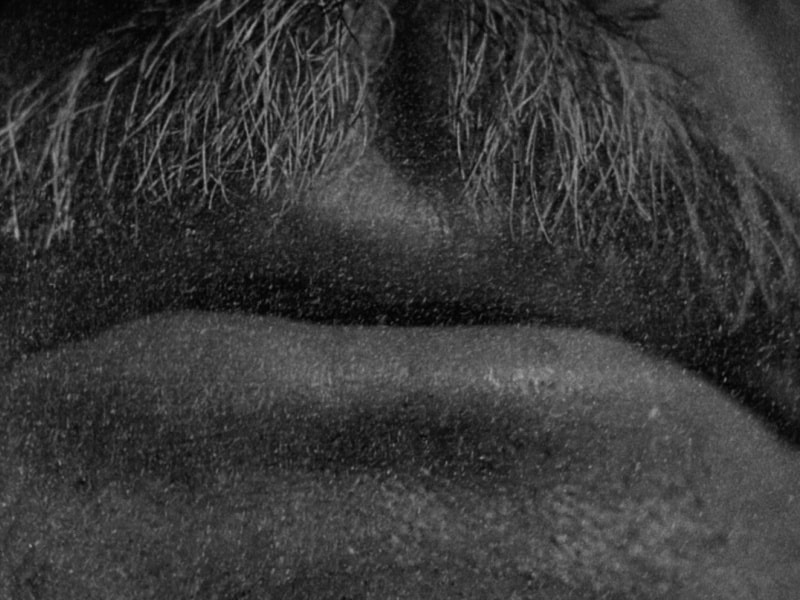#The Ending of ‘Citizen Kane’ Remains a Vicious Revenge Against a Tyrant

“#The Ending of ‘Citizen Kane’ Remains a Vicious Revenge Against a Tyrant”
Ending Explained is a recurring series in which we explore the finales, secrets, and themes of interesting movies and shows, both new and old. This time, in preparation for David Fincher’s upcoming Mank, we return to the Citizen Kane ending and discuss how one word can summarize a man’s existence.
Few human beings have received as vicious and delightful an “F you” as William Randolph Hearst did when Citizen Kane erupted upon the Earth. The film is a masterpiece on many fronts. It’s a technical achievement, a go-to education in deep focus, extreme close-ups, overlapping dialogue, and rear projection. Wunderkind Orson Welles relishes in the mashing of genres, injecting Citizen Kane with flashes of gothic horror as well as surrealism and comical melodrama. Yet, at the end of the day, the de facto greatest movie of all time is a hit piece, designed to tear down the media tycoon by screenwriter Herman J. Mankiewicz and sealed with a kiss by Welles.
What spurned such boiling vitriol from Citizen Kane‘s creators? David Fincher’s new Netflix movie Mank attempts to explain the noxious contempt the screenwriter nurtured for Hearst after being cruelly excised from the billionaire’s societal circle. The tale is torrid and stuffed with incredible acts of human audacity, but it’s also easily discernable after a close reading of Citizen Kane‘s ending. Mankiewicz was not subtle; every ounce of his venom is brutally splashed upon the audience during the film’s final moments.
Rich men are bastards, and “Get Out of Hell, Free” cards cannot be bought.
Even if you’ve never seen the film, you probably know the ending of Citizen Kane. Rosebud, it’s his sled. The final word uttered by the dead man at the center of the story refers to his castaway childhood toy, a hunk of junk buried in a mountain of riches. The film’s last batch of shots depicts Rosebud’s cremation and skyward ascendence via smoke and ash through Castle Kane’s chimney.
For much of the film’s runtime, reporter Jerry Thompson (William Alland) consults various significant figures throughout Charles Foster Kane’s life. No one can explain “Rosebud” to him. Not Kane’s second ex-wife (Dorothy Comingore), not his former best friend (Joseph Cotten), and not his ex-employee (Everett Sloane).
That’s a lot of exes. Kane was good at many things, but no one surpassed his ability to collect exes. All that entered his social bubble came pre-packaged with an expiration date, whether they knew it or not.
Toward the end of the film, Thompson stands with other reporters amongst Kane’s massive assembly of priceless trinkets. The man is dead. The statues, knickknacks, and baubles he collected over his lifetime must now be sorted and redistributed. It’s a task seen as exhausting rather than wonderous.
The Ark of the Covenant could be amidst these gems, and it would be easily missed by the workers charged with their disposal. Amassed together, the artifacts are meaningless. What’s one more armless Venus when propped against a dozen others?
Thompson’s colleagues inquire about his success in uncovering the truth behind “Rosebud.” The reporter sighs and shakes his head. “I don’t think any word can explain a man’s life,” he says.
The camera digs within the towering crates. It swoops over the servents in the darkest pits of Kane’s dungeon as they hurl the endless stream of useless leftovers into the incinerator. A sled is picked from the pile and chucked inside, and the camera stays with it. As its paint bubbles into nothingness and the flames transform the sled’s particles from solid to gas, we read its name painted lovingly on its surface: “Rosebud.”
On the outside of Kane’s castle, his manufactured Xanadu, we gaze north. The sled mingles with the rest of the garbage, expelled into the atmosphere in a steady black smoke stream. The camera pans down on the perimeter fence and the “No Trespassing” warning strapped to it.
Kane, like his fortress, admitted no one. His hurt was his. Alone. For all his wealth, power, and fame, at this moment, Charles Foster Kane is reduced to a child crying for the innocence stolen from him.
The last time we, the audience, saw the sled in the film, a child Charlie raced it down the hill outside his home. While he gallivanted in the background, his parents signed away his guardianship to the banker Walter Parks Thatcher (George Coulouris). After gold was discovered on their property, Kane’s mother (Agnes Moorehead) believed a trust and a sugar daddy would provide a superior life than the one she could supply.
Charlie proved to be savagely ambitious, using that gifted opulence as a springboard into economic and political dominance. In the process, Charlie metamorphosed into Charles Foster Kane, the tyrannical, abusive, and lonely old man who wanted for nothing but the childhood that would never return.
The most powerful man in the world’s last word is Mankiewicz calling Kane, his William Randolph Hearst voodoo doll, a putz. Congratulations, jackass. You crawled your way to the top, but you’re just like any dope whining “Mommy” as the shadows fall. In the race to slam your enemies, you alienated your family and your friends. You’re hated, and when you’re hated, you’re nothing.
As far as insults go, Citizen Kane‘s ending cuts deep. Hearst banned any mention of the film from his laundry list of newspapers, and he commanded his journalists to smear Welles in one article after another. Thanks to Welles blathering about the incident himself, rumors circulated that Hearst attempted to trap the director in a hotel tryst with a fourteen-year-old girl hidden away in his closet. A warning from a police detective averted the scandal from occurring.
Welles used Hearst’s fury over Citizen Kane to help promote the film. He set up several preview screenings under the guise of artistic integrity, claiming all creative expression was under attack. These early showings garnered early critical acclaim, boosting distributor RKO’s confidence in the picture after it started to wane due to Hearst’s attacks.
To call Welles victorious in this endeavor would be misleading, however. Hearst did not halt RKO from releasing Citizen Kane, but he did manage to convince many movie theaters to ban the picture. The box office was decent. Kane ranked as the sixth highest-grossing picture of 1941, but there is no doubt that the film would have scored a much larger total without Hearst’s interference.
Of course, given the poison toward the media mogul pumped into the ending of Citizen Kane, zero interference was never possible. Herman J. Mankiewicz achieved revenge on Hearst. The tycoon cannot be mentioned without the film, and the film cannot be mentioned without the tycoon. The two are forever linked. To gaze upon Hearst’s face is to hear the word, “Rosebud” and witness a chump exposed.
If you liked the article, do not forget to share it with your friends. Follow us on Google News too, click on the star and choose us from your favorites.
For forums sites go to Forum.BuradaBiliyorum.Com
If you want to read more Like this articles, you can visit our Social Media category.




